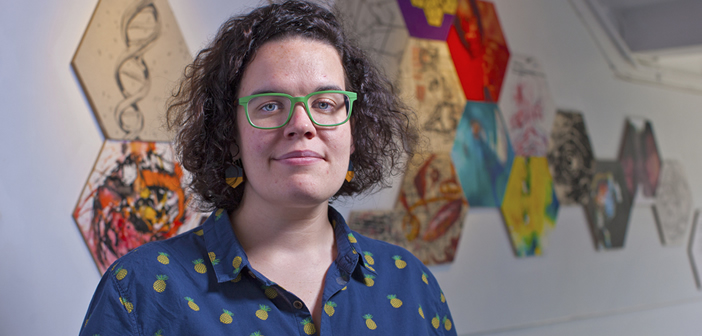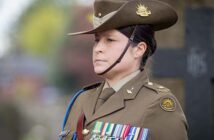APPLETON woman Alice Williamson is playing a leading role in the world’s search to find a cure for malaria.
Alice, who discovered her passion for science while studying at Priestley College, was recently named one of Australia’s most promising young scientists due to her work with the Open Source Malaria project.
“We are designing new medicines to tackle malaria and rather than writing down our findings in a secret notebook we publish it all online,” said Alice, who grew up in Appleton.
“Anyone can see our findings and not just those who pay for it as happens in some laboratories when big companies are involved. It means other scientists around the world can learn from our discoveries and hopefully it will lead to a cure being found sooner.”
The Open Source Malaria project shares all data and welcomes contributions from anyone, no matter what their expertise.
It promises not to patent any of its research—making it the world’s first completely open drug discovery project.
Alice, who is 30, is the lead experimental chemist for Open Source Malaria and was recently named one of Australia’s Top 5 scientists Under 40, a project to find the most promising minds of the next generation with a passion for scientific communication.
Last week, as she returned to Warrington to visit family and former tutors at Priestley College, Alice spoke of the need to remove the veil of secrecy that surrounds a lot of scientific research.
“It was very important to me to be involved in open research because I believe it is the best way to achieve the end results,” she said.
Jan Costello, director of Science, Technology, Engineering and Maths at Priestley, said it was obvious that Alice was destined for high achievements.
“Alice was an exceptional student who studied a wide-ranging curriculum,” said Jan. “I’ve enjoyed watching her progress and being able to see the difference she is making in worldwide research leaves me bursting with pride.”
Alice studied at St. Gregory’s Catholic High School before joining Priestley where she took AS Levels in Chemistry, Biology, Physics, Drama, Design and Technology, English Literature, Citizenship and General Studies.
She considered becoming a furniture designer before focussing on her sciences and went on to complete a Masters in Medicinal Chemistry at Leeds University and a PhD at Cambridge during which she designed a new type of chemical reaction.
Last week she pledged to continue the search for a cure to malaria, which kills as many as half a million people every year.
“We are not in the lab because we like to mix things together, but because we want to make the world a better place,” she said.





1 Comment
What a refreshing change to have a scientist in the medical field actually working to “make the world a better place” rather than just lining the coffers of the drug companies.
Many so called ‘cures’ or ‘treatments’ in common use today are probably worse for us than the diseases / ailments they are marketed to treat but despite this fact being recognised they continue to be used until copyright on them has expired – protecting the interests of the drug companies.
Scientists sharing information (without an eye on who will make the most profit) could lead to genuinely effective and affordable treatments. All good luck Alice!